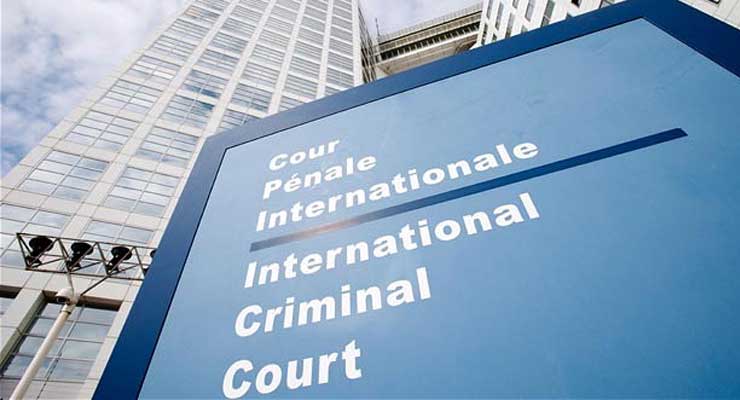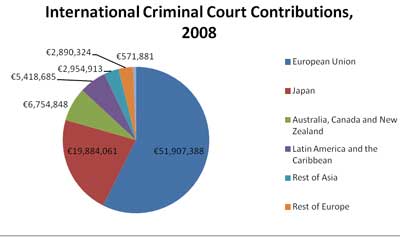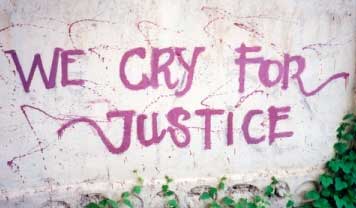
Back in September, UN Secretary-General Ban Ki-Moon called for the Syria crisis to be referred to the International Criminal Court (ICC). Syria, however, has not adopted the Rome Statute, the treaty that established this court, thus the ICC cannot obtain jurisdiction over the situation there. Only if the Syrian government decided to ratify the treaty now could the ICC address the crisis. However, would referring the crisis to the ICC would actually be effective?
Here’s a background on the creation of the ICC. It was after the Cold War that the realization became undeniable that the world’s nations should put a permanent mechanism in place to address serious crimes of international concern. This mechanism was the ICC, established during the summer of 1998 by the Rome Statute. Adopted by 120 countries at the time, it was finally ratified by 60 countries in 2002. It was to be a court of last resort, charged with the task of trying those accused of the most egregious crimes committed against groups of people, such as genocide, war crimes, crimes of aggression, and crimes against humanity.
 The ideal and the mission of the ICC appears to be seemingly acceptable by the world’s nations, however there is criticism that ICC inappropriately tries to assert the supremacy of its authority over nation states, and that its framework is not consistent with the clear organizational structure expected and required, given its important role in international law. Most importantly, the validity of concept of international law calls into question the ability of the ICC to effectively exist as it is currently structured. As such, the ICC’s inadequacies overshadow its well intentioned mission.
The ideal and the mission of the ICC appears to be seemingly acceptable by the world’s nations, however there is criticism that ICC inappropriately tries to assert the supremacy of its authority over nation states, and that its framework is not consistent with the clear organizational structure expected and required, given its important role in international law. Most importantly, the validity of concept of international law calls into question the ability of the ICC to effectively exist as it is currently structured. As such, the ICC’s inadequacies overshadow its well intentioned mission.
The ICC, an independent intergovernmental organization and international tribunal, was created as a court complementary to those of sovereign nations, with the jurisdiction to prosecute human atrocity crimes that national governments themselves could not, or would not, address. It would help end impunity for the perpetrators of such crimes. Charged with such a critical task, the ICC has had to work within a framework of political ideals based on internationally accepted societal values and a judicial structure loosely based on the European parliamentary system. While on the surface, it may appear that the ICC operates in an organized way, given the above, to the contrary, the ICC lacks organization, and it undermines its effectiveness on the world stage.
Firstly, the very definitions of the four major crimes the ICC prosecutes are not clearly established. As a result, it fundamentally brings into question what “actions” the court can prosecute. For instance, would anyone prosecute the United States for the aerial bombing of Germany and Japan during World War II? And yet, the vagueness of the definition of a war crime could constitute the bombing as such. As a result of the lack of an organized and established set of definitions of the crimes, there is potential for the politicization of the accusations being made.
This is complicated by the next point: the lack of political checks and balances within the ICC’s central structures, the prosecutor and the court. The ICC prosecutor, who conducts investigations and prosecutions before the court, may initiate investigations based on referrals by states’ parties to the statute—or, they may also initiate an investigation independently on information otherwise obtained. They may cause a stir by calling witnesses and gathering documents but never charge anyone with a crime. They—depending on his or her own political agenda—can also politicize the process: the prosecutor is answerable only to the court, and not always.
 The court is accountable to no one; it does not have to adhere to established lawmaking and judicial processes. Specifically, the court has not had to clearly define its standards for how laws are written, adjudicated, and enforced. The adjudication of the law particularly shows lack of judicial rigor. The vague language of the ICC’s statute enables judges to interpret the law at their own discretion and with substantial latitude. The combination of the unclear definition of the crimes and the power held by the prosecutor and the court risks the allowance of the broadening of the definition of the crimes and the inappropriate accusation of individuals for inconclusively defined crimes of atrocity.
The court is accountable to no one; it does not have to adhere to established lawmaking and judicial processes. Specifically, the court has not had to clearly define its standards for how laws are written, adjudicated, and enforced. The adjudication of the law particularly shows lack of judicial rigor. The vague language of the ICC’s statute enables judges to interpret the law at their own discretion and with substantial latitude. The combination of the unclear definition of the crimes and the power held by the prosecutor and the court risks the allowance of the broadening of the definition of the crimes and the inappropriate accusation of individuals for inconclusively defined crimes of atrocity.
At the core of the ICC’s existence—and directly leading to the suboptimal organization described above—is the uneven understanding of international matters of power and force. To interpret the roles of appropriate force and diplomacy in the international arena necessarily as matters of law is potentially dangerous. Its understanding of such matters is at the foundation of its effectiveness as a deterrent to heinous crimes against people.
The complexity of international relationships—whether they are economic, religious, historical, or military—that can override the “justice” rendered by the court limits the authority of the ICC. If nations independently do nothing to support a decision against a perpetrator of an atrocious or aggressive crime, why would the perpetrator feel deterred by the mere possibility of future legal action?
In the case of Syria, it does not look like the jihadists would be at all threatened by legal action. And interestingly, the ICC cannot mandate the execution of a convicted perpetrator. That is why the ICC wants, in certain instances, to supplant the judicial systems of smaller and weaker countries to “control” justice and perhaps effect a deterrent rather than encourage the warring countries to resolve questions of criminality as part of a comprehensive solution to their problems.
I am not criticizing the aim of the court to prosecute and punish perpetrators of atrocious human crimes. However, the ICC must be structurally changed so that it is understood and respected by its member states and is protected against political pressure. If it were organized better, then I would have agreed with Ban Ki-moon to bring this crisis forward to the ICC.
Leave a Reply